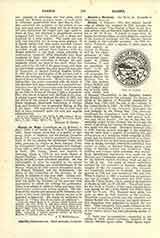

Alanus de Rupe (sometimes DE LA ROCHE), b. about 1428; d. at Zwolle in Holland, September 8, 1475. Some writers claim him as a native of Germany, others of Belgium; but his disciple, Cornelius Sneek, O.P., assures us that he was born in Brittany. Early in life he entered the Dominican Order, and while pursuing his studies at Saint Jacques, Paris, he distinguished himself in philosophy and theology. From 1459 to 1475 he taught almost uninterruptedly at Paris, Lille, Douay, Ghent, and Rostock in Germany, where, in 1473, he was made Master of Sacred Theology. During his sixteen years of teaching he became a most renowned preacher. He was indefatigable in what he regarded as his special mission, the preaching and reestablishment of the Rosary, which he did with success throughout northern France, Flanders, and the Netherlands. His vision of the restoration of the devotion of the Rosary is assigned to the year 1460. Alanus published nothing during his lifetime, but immediately after his death the brethren of his province were commanded to collect his writings for publication. These were edited at different times and have occasioned much controversy among scholars. His relations of the visions and sermons of St. Dominic, supposed to have been revealed to Alanus, are not to be regarded as historical. His works are published by Graesse in “Tresor des livres rares et precieux”.
J. T. MCNICHOLAS

